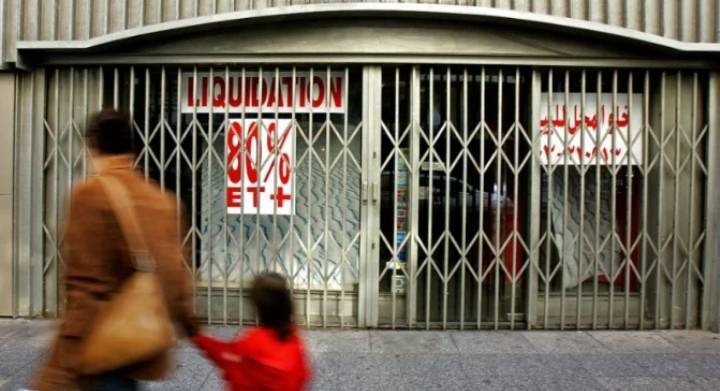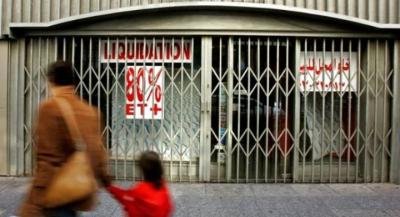This week, parliamentary committees continue discussions on legislative proposals aimed at rescuing the financial sector and restoring its operations. The first appearance of the capital control law was in April 2020, followed by Lebanon's Central Bank issuing basic circular No. 154 in August of the same year, aimed at initiating the restructuring of banks. However, as of today, there are no significant accomplishments in either instance, with political authorities and the banking association exchanging accusations. The capital control bill has moved between the Finance and Budget Committee, the Administration and Justice Committee, and the General Assembly several times in an effort to pass the law, while work on restructuring the banking sector will begin this week in a meeting of parliamentary committees. The current discussions under the umbrella of "capital control law" or other laws seem to be adding fog and ambiguity to Lebanon's current issues.
Three broad points under discussion in the capital control bill that are aimed for inclusion in a single law are: regulating the relationship between the depositor and the bank, setting controls on the movement of capital to and from Lebanon, and absolving banks of all illegal acts they have committed and been subjected to, due to circumstances, since the onset of the crisis in October 2019.
Risk management expert and economist Muhammad Fakhili believes it is erroneous and impossible to create a single law addressing these three topics. For this reason, he argues that this law will not see the light of day, and everything accomplished through these meetings is merely for registering and achieving political gains – “action without results!” But does Lebanon need legislation on all these points? Fakhili confidently replies: “No.”
Regarding the regulation of the relationship between the depositor and the bank, Fakhili believes that the monetary authority must "review the current circulars and reestablish available payment methods through the banking sector (debit and credit cards, checks, and transfers) and the laws governing this relationship to ensure a legal infrastructure (the currency and credit law, the Central Bank's circulars, and the Banking Control Committee). This is also considered the mandatory pathway to revive the banking sector and restore trust between depositors and banks. What is currently being discussed regarding regulating this relationship is merely setting a cap on withdrawals (in cash and/or transfers abroad) from accounts held in foreign currencies, while the relationship between the depositor and the bank should exceed these limits if indeed the goal of these discussions is to bring life back to the banking sector.
As for setting controls on the movement of capital to and from Lebanon, Fakhili sees it as a necessity that is unnecessary, stating that "restricting capital outflow today may face, on the other side, restrictions on its inflow from external parties." The outflow of capital before and after the onset of the economic and financial crisis in 2019 aimed to smuggle funds, and the political authority should have acted quickly to curb that at the time. The Central Bank requested that banks, in one of the articles of basic circular No. 154, revert to July 2017 and ask their customers and major shareholders to return 15% to 30% of what was taken out, indicating that Lebanon needed to impose controls on the movement of capital long before the crisis. Due to the absence of oversight, imposing controls on capital movement could lead to corruption regarding the inflated import bill as importers find ways to smuggle money abroad, while exporters refrain from returning their revenues from trade to Lebanon.
Regarding "absolving banks from all illegal acts they have committed and been subjected to due to the circumstances (as all depositors demanded to withdraw their money simultaneously since the onset of the crisis in October 2019)," this point has received ample discussion in committees, alongside encouragement and intimidation from monitors and analysts. Fakhili believes there should be a clear distinction between absolving "banks" and "bankers." He states, "it is impossible to require a capital injection of new, clean funds into institutions suffering and grappling with a massive number of lawsuits against them, while the decision-makers in them are accused of corruption. Errors by banking institutions are dealt with by the Banking Control Committee, and if resolution is impossible, the bank is liquidated. However, illegal acts committed by bankers must be addressed through the competent judiciary, starting with the banker stepping down from their position within the institution, even if they are a significant shareholder. If Lebanon requires a law to formalize this, it should be one of the provisions of the Banking Sector Restructuring Law rather than part of the capital control law."
The kickoff of the Banking Restructuring Law and the regularization of operations in the financial sector depends on determining the scale of losses – losses from: the depositor, the bank, the banker, or the political authority that squandered these funds. This project has two pillars: re-capitalizing the central bank by exempting it from obligations towards banks and infusing new capital that is currently not available (meaning the state), and classifying deposits into qualified and unqualified deposits to justify the amount of haircut that will be applied and how to schedule repayment to depositors. So, according to Fakhili, that delineation of the issue is flawed; how can the solutions be correct?
It is wrong to re-empower the “central bank” by eliminating bank placements with it or resorting to debt to support its capital, as all deposits are qualified, and their rightful place is in bank accounts, and working towards repaying them to depositors contributes to economic strangulation, not recovery. What the Lebanese banking sector needs today is time to recover. Yes, Fakhili says that the problem is a matter of "time" if the will is present, and solutions will only arise with time to reschedule and restructure public debt. As for enforcing a reconsideration of the banks' loss calculations, this would improve Lebanon's credit rating, "which will positively reflect on the relationship of Lebanese banks with correspondent banks abroad, as well as positively on the investments of banks at the Central Bank. Everyone now knows that due to the unregulated default in March 2020, all bank placements were converted for years until 2037 in sovereign debts to immediate losses that require available capital to absorb these losses. The response to this painful reality has been devastating, with depositors rushing to claim their funds regardless of their maturity, and global financial markets closing their doors to the Lebanese financial sector, along with the deterioration of the relationship between Lebanese commercial banks and correspondent banks."
The focus in the discussion of restructuring the banking sector, according to Fakhili, should be on "how to revive the restoration of trust between banks and their clients, including depositors and correspondent banks, to bring life back to the sector, as the unregulated default by the ruling authority has eroded customers' trust in these institutions. He believes that "serious engagement by the Lebanese state on the issue of returning to negotiations with creditors to reach a serious plan for restructuring and rescheduling public debt is the mandatory path to normalizing operations in the financial sector, and trust and life will not return through liquidating a bank or supporting another. The financial sovereignty of the nation has been shaken due to the unregulated default, and restoring this sovereignty is the key to the solution. To clarify, the credit rating ceiling for any financial institution is the credit rating of the state in which it exists – all banks operating on Lebanese territory, regardless of their true capacity, carry the credit rating of Lebanon, meaning "defaulted." This rating does not change by strengthening a bank's capital; it changes and improves through efforts to restore financial and monetary sovereignty to the country."




